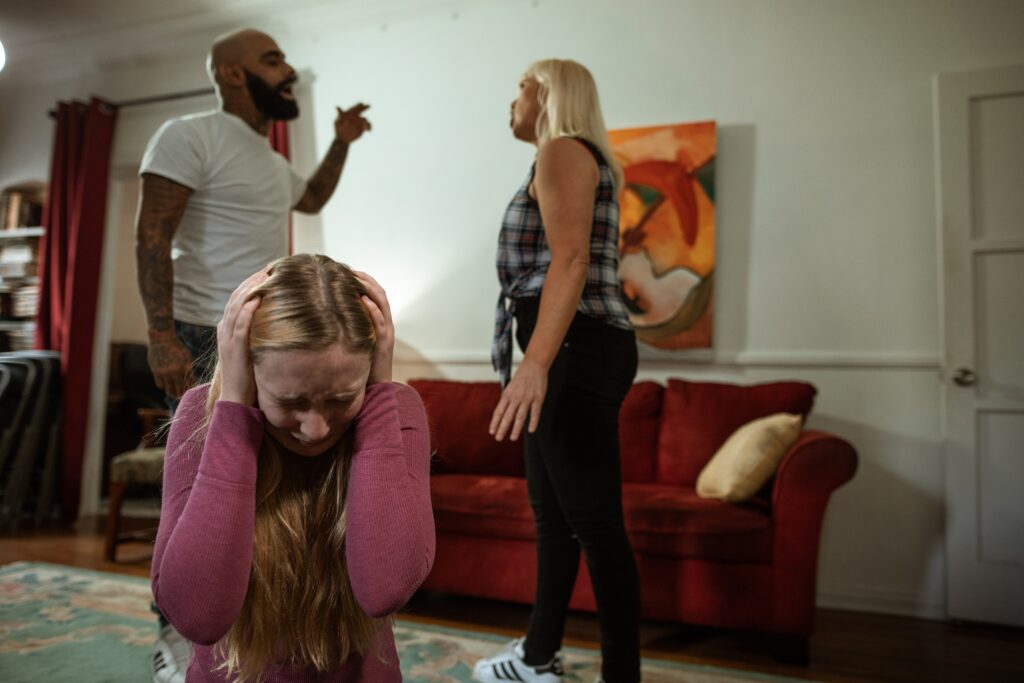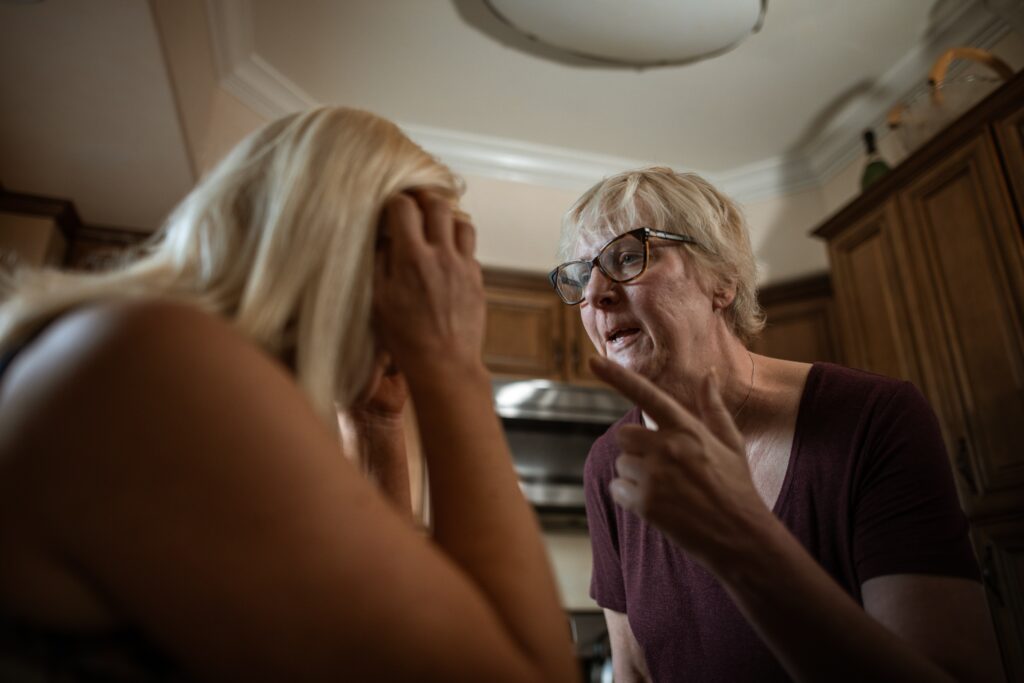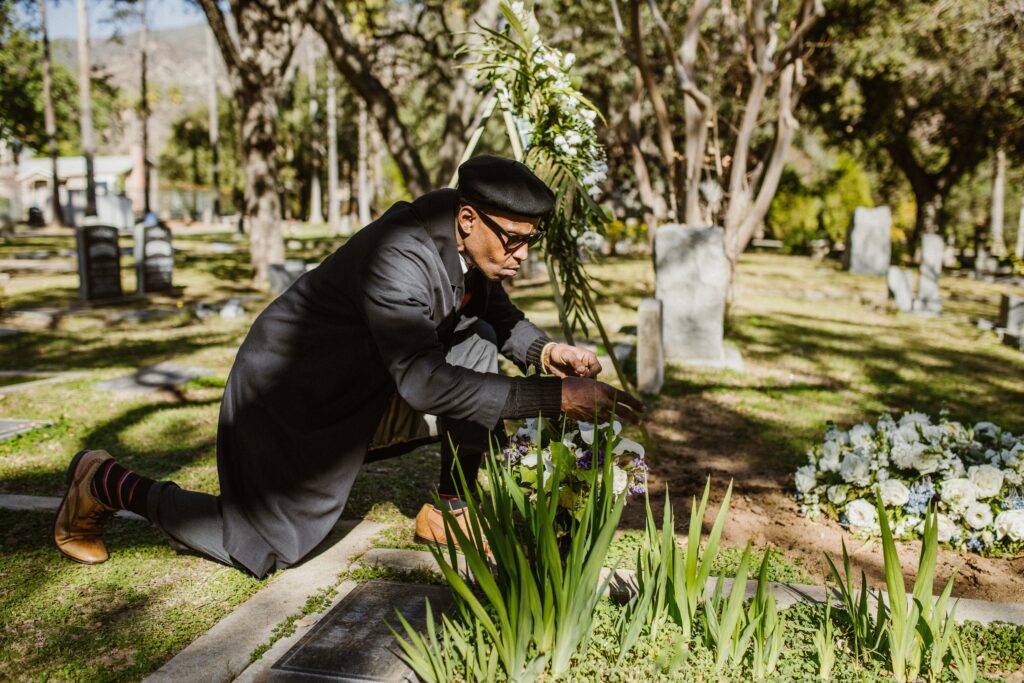6 Unknown Childhood Trauma Triggers

This is a disclaimer that this article is for informative purposes only and is not intended to diagnose or treat any condition. Please reach out to a qualified mental health professional if you are struggling.
Trauma is a very difficult part of life. It comes in many forms and can happen at any stage influencing the way you think, act, and process emotions. These traumas can resurface in ways that we don’t immediately recognize. To better understand some of these unknown triggers, we’ll be taking a look at six of them.

Being With People That Are Emotional
For people that have been through abusive or neglectful childhoods, you may find yourself on edge when someone shows strong emotions. Whether it’s someone bursting into tears or raising their voice, you may find yourself growing increasingly uncomfortable. Dr. Jonice Webb from Psycentral states that one reason this happens, is related to how someone else’s emotions affect yours (Webb 2019). When another person is getting emotional, you may find yourself bubbling with emotions that you weren’t allowed to have. This in turn makes the situation uncomfortable and escaping a priority.

Reactions to Certain Places and People
Trauma is triggered by memory. Seeing people or being in certain places that remind you where something bad happened to you can be a difficult experience as any resemblance to your trauma is a potential trigger. According to the Integrative Life Center, you may not always recognize this. Talking with specific people may feel “off” for an unexplained reason, but perhaps they’re a reminder of someone from your past. The same goes for your physical location as even subtle reminders, like colors can trigger your trauma (Integrative Life Center 2022).

Avoiding Help, Even When You Need It
Asking for help can be incredibly difficult for people that experience trauma or neglect as a child. When asking for help from parents or someone that you should trust went poorly, it can be hard to do so later in life. You worry about their reaction, or worse, their rejection. Dr. Webb states that having this dynamic between people that you should trust early in life, can make it extremely difficult to go to anyone else later (Webb 2019). When you’re in a situation where you need help, it can quickly bring up feelings of guilt, hopelessness, and worthlessness.

Avoiding Conflict At All Costs
Conflict is never easy to deal with. If you’ve experienced a traumatic event or neglect early in life, you may try to avoid conflict at all costs as a defense mechanism. Licensed Clinical Social Worker Sean Grover breaks avoidance into three categories: apologizing, agreeing, and accommodating (Grover 2017). Whether you’re constantly apologizing to someone, always agreeing with them no matter the cause, and working to conform to their needs over your own, you are trying your best to avoid a problem… before it even is a problem. Despite your efforts to avoid conflict, you may find that your relationships have become unstable, distant, and in the end, lost (Grover 2017). The conflict avoidance can escalate to a point where those close to you are unable to reach you.

Sensations
Seeing and hearing something that reminds you of your past can certainly trigger a traumatic response. We mentioned earlier that certain colors can trigger your trauma, but so can certain textures, tastes, and even smells (WebMD 2017). Your sense of smell is closely correlated to your memory which can make you especially sensitive to these stimuli. According to an article by McLean Hospital, this works in the same way that a scent can make you nostalgic of something in the past, or can bring you comfort, like fresh baked cookies (Mclean 2015). Your brain responds to sensations quickly and can create an emotional reaction before you have time to process what it is.

The Media That You Consume
The media that we consume has a strong grip on the emotions we feel. TV, movies, news articles, music and more are all engineered to get an emotional reaction out of us. Sometimes this reaction can be unhealthy and can trigger something deep within. Seeing a similar trauma that represents your own can be detrimental to your mind space and may cause you to spiral. Media doesn’t spare you the ugly details which can make you feel like you’re reliving the experience. Additionally, having a focus on dark topics like death, chaos, and violence. According to Dr. Jessica Hamblen, media covering these types of topics can put you in a vulnerable headspace making you more susecptible to negative emotions and thoughts (Hamblen 2019).

Time and Anniversaries
As traumas are triggered by memories of past events, this can be anything related to the time that the incident happened. Whether the anniversary of a loved one’s death is approaching, or the date of a horrible tragedy is coming up, you may find yourself more on edge than normal. Your brain is really good at sensing patterns, so any sign that an event anniversary is coming up; such as seasons changing or calendars moving up a month can serve as a subconscious reminder. Research from the National Center for PTSD states that is our brain reminding us to be afraid of a horrible event occurring. When patterns emerge that are similar to when a horrible event happened, our brain kicks into gear to get us to safety (Hamblen 2019). While this can help us keep out of danger in some scenarios, in others it’s completely unavoidable and consuming (National Center for PTSD 2022).

While trauma is incredibly difficult, it is important to know that there is help and a way to heal from it. We can’t always be aware when it is affecting us and to what extent, but talking with a mental health professional can make this work much easier. If you have been through a traumatic event, it’s important to know that help is possible and that you’re not alone.

References:
- Firestone, L. (2017, April 22). Resolving the Trauma You Didn’t Know You Had. PsychAlive. www.psychalive.org/resolving-trauma/
- Grover, S. (2017, September 15). How Avoiding Conflict Escalates Conflict in Relationships . PsychologyToday. www.psychologytoday.com/us/blog/when-kids-call-the-shots/201709/how-avoiding-conflict-escalates-conflict-in-relationships
- Hamblen, J. (2019, October 14). VA.gov | Veterans Affairs. www.ptsd.va.gov/professional/treat/type/media_coverage_trauma.asp
- Integrative Life Center. (2022, August 22). Signs of Repressed Childhood Trauma in Adults. integrativelifecenter.com/signs-of-repressed-childhood-trauma-in-adults/
- Mclean. (2015, October 5). McLean News | New Study Indicates That Sense of Smell Could Play Major Role in New Approaches to Treating PTSD. Mcleanhospital.org. www.mcleanhospital.org/news/new-study-indicates-sense-smell-could-play-major-role-new-approaches-treating-ptsd
- National Center for PTSD. (2022, August 30). VA.gov | Veterans Affairs. www.ptsd.va.gov/understand/what/anniversary_reactions.asp
- Thatcher, T. (208 C.E., November 22). Healing Childhood Trauma in Adults. Highlandspringsclinic.com. highlandspringsclinic.org/healing-childhood-trauma-adults/
- Webb, J. (2019, September 29). 6 Common Events That Can Trigger Your Childhood Emotional Neglect. Psych Central. psychcentral.com/blog/childhood-neglect/2019/09/6-common-events-that-can-trigger-your-childhood-emotional-neglect#3
- What Are PTSD Triggers? (2017, March 23). WebMD. www.webmd.com/mental-health/what-are-ptsd-triggers




Responses